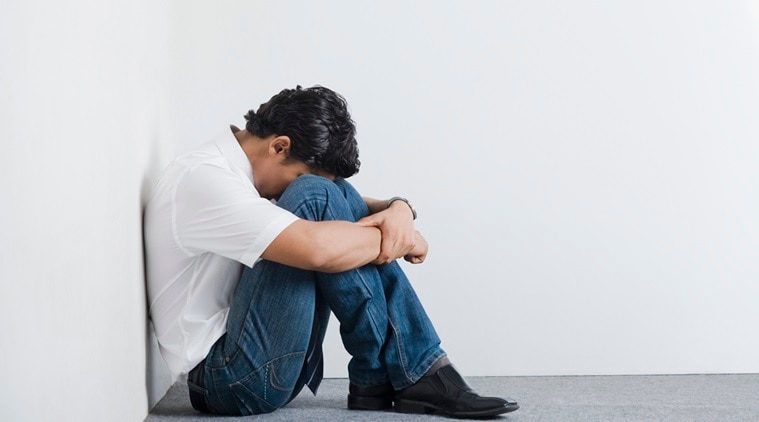Mental health and suicide prevention helplines, counselling centres in India
Suicide prevention features in one of the Sustainable Development Goals (SDGs) 3: Ensure healthy lives and promote well-being for all at all ages.

Recently a retired Air Force personnel committed suicide at a hotel in Allahabad and left a suicide note addressed to Narendra Modi. In his note, he blamed the economic conditions for his death and ‘P Chidambaram for the slowdown’. Not long ago, VG Siddhartha, the owner of Cafe Coffee Day went missing and was later found to have committed suicide. Though these are recent examples, according to the World Health Organization’s (WHO) latest report, India has the highest suicide rate in the South-East Asian region.
While suicide is a largely preventable public health problem, the report released ahead of World Suicide Prevention Day (WSPD) which is being observed on September 10, pegged India’s suicide rate at 16.5 suicides per 1,00,000 people.
WSPD is organised by the International Association for Suicide Prevention (IASP) and WHO has been a co-sponsor of the day. The purpose of this day is to raise awareness around the globe that suicide can be prevented.
ALSO READ| WHO calls for suicide prevention strategy as global rate dips
“Despite progress, one person still dies every 40 seconds from suicide,” said WHO Director-General, Dr Tedros Adhanom Ghebreyesus. “Every death is a tragedy for family, friends and colleagues. Yet suicides are preventable. We call on all countries to incorporate proven suicide prevention strategies into national health and education programmes in a sustainable way.”
Sri Lanka stands second in the region with a suicide rate of 14.6 and Thailand (14.4) at the third spot. As per the statistics released, India also had the third-highest female suicide rate (14.7) in the world after Lesotho (24.4) and Republic of Korea (15.4).
Suicide prevention also features in one of the Sustainable Development Goals (SDGs) 3: Ensure healthy lives and promote well-being for all at all ages.
The data pertains to the WHO estimates of 2016.
While there is no national distress helpline in India as of yet, there are several organisations across the country that are committed to the cause of mental health. They run counselling services and suicide helplines for anyone in danger of committing suicide:
1. 3592- 221152 is installed at Police Control Room, Gangtok, Sikkim
2. Vandrevala Foundation Helpline
Tel (India): 1 860 266 2345 (24×7)
1800 2333 330
Email: [email protected]
3. iCall, Mumbai: +91 22 2556 3291
Monday to Saturday, 8 am to 10 pm
Email: [email protected]
4. Samaritans, Mumbai: 91 84229 84528 / +91 84229 84529 / +91 84229 84530
Monday to Sunday, 3 pm to 9 pm
Email: [email protected]
5. Aasra: 91-9820466726(24×7)
Email: [email protected]
6. Lifeline Foundation, Kolkata: 033 2463 7437
Address – 17/1A Alipore Road
Sarat Bose Road 700 027
Kolkata
7. Arpita Foundation
10 am to 1 pm | Monday to Saturday
2 pm to 5 pm-
+91 8105247529
8. Roshni Trust
11 am to 9 pm | Monday to Saturday
040 66202000
Email – [email protected]
9. NGO SPACE for transgender community
Tele-counselling helpline: 1800111015
Some of the staggering statistics out of the report are:
1. Around 800,000 people commit suicide every year in the world.
2. Suicide is responsible for more deaths than malaria, breast cancer, war or even homicide, according to the WHO. It was the second leading cause of death among 15-29 year olds, claiming 200,000 lives in 2016, topped only by road injury.
3. It also ranked second among women (after maternal conditions) in the same age group and third among men (after road injury).
4. For every suicide, there are many more people who attempt suicide every year. A prior suicide attempt is the single most important risk factor for suicide in the general population.
5. 79 per cent of global suicides occur in low and middle-income countries.
6. Ingestion of pesticide, hanging and firearms are among the most common methods of suicide globally. In addition, moments of crisis with a breakdown in the ability to deal with life stresses, such as financial problems, relationship break-up or chronic pain and illness along with experiencing conflict, disaster, violence, abuse, or loss and a sense of isolation are strongly associated with suicidal behaviour.
Source: Read Full Article


